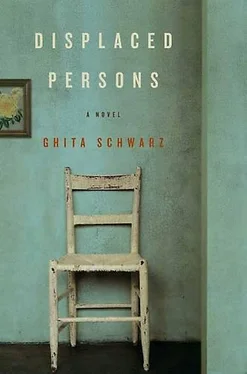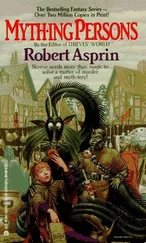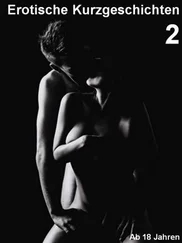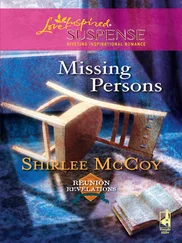But first, Feluchna, I write to Landsberg. I feel, I have a feeling. He took Fela’s hand into his lap without looking. Perhaps Hinda is alive.
Pavel, said Fela. But then she kept quiet.
I had six brothers and sisters, said Pavel. Now I am one. But perhaps we are two. He was stroking her palm with his fingers. Two is a stronger number than one.
Two is a stronger number than one. It was true. Still she did not speak. Who was to say that Moshe, even if he was alive, did not think the same thought, did not find his own new woman to make a wife, to sail to Australia or Sweden or, God in heaven, South America? She was stupid, stupid, refusing to accept, wanting to interrupt Pavel’s thoughts and say, I still look too. I still look too. But she was sure he knew what she thought. She was sure he knew she still waited.
She leaned her head against his shoulder, feeling the gesture itself was a lie to Pavel, a theft from Moshe. A chill of anger at both of them, at everything each wanted to take from her, rose in her face. She and Pavel now slept every night in the same bed, and she wanted her solitude back, the loneliness no one watched, the privacy of grieving.
Go, she said. Go yourself to Landsberg.
Will you not come with me?
No, she answered. We will be two in the house, myself with Chaim. We are two. The poor boy should not be alone. Go. Take your bicycle.
He looked at her, eyes almost begging, scanning her face for an explanation. His hand went to his breast pocket, tapped at his chest, touching, Fela knew, the cloth that protected his photographs.
Go, she repeated. Pretend I am with you, a bit ahead of you. Pretend. But go.
PAVEL FOUND HIMSELF AWAKE in the night, no dream to remember. Fela slept next to him, breathing quietly, and Chaim, his things in a neat pile in Fela’s old room, would not return from his trip for at least another day. He got up to open his drawer and look inside. He did not dare take the stones out of the pouch. If she knew what he had, if she knew how he had it! But was it such a crime? Perhaps if he had come across the men now he would have stopped himself, he would have felt sickened at what he had, jewels taken from the murdered-but then he had been in a different world-and even then there were certain things-terrible things-that he had not permitted himself to do, not even in the most desperate of moments. And if he and Fishl had not taken, who would have had the stones instead? No, dirty gold and stolen gems had helped him take her into a home, make a warm place for Chaim. Now it could help him find his own. He still had a number of silver bracelets to leave with her, along with the money he had saved from trading.
He fingered his parents’ pictures in their brown envelope. If he should find Hinda-he dared not think it even-if he should find her, he would show her what he had preserved-no, he would not think it.
He should tell Fela about the stones. He should give them to her for safekeeping. But even as the thought moved through his head, he wrapped his parents’ pictures in a paper and slipped them inside the velvet pouch of diamonds.
I will carry them both, he thought.
October-November 1945
I N THE LITTLE MOUNTAIN cabin a child began to cry. After some minutes another child began to shout at him, and then another. Be quiet, stop this sniffling and weeping, let us sleep, let us sleep. Chaim got up from his cot. He really was too old to be with this group, but the counselors had taken him on the youth trip, thinking he could help keep watch.
Yosl, he said. Yossele.
The boy turned away from him, coughing through his tears.
Yosl, come with me outside. You will feel better.
Yosl continued his weeping, trying to muffle the sound with a blanket.
Go! Go! shouted another child. Just go out and let us be! Give us peace for a moment! Another boy laughed.
At last Yosl got up and followed Chaim out. The night was not too cool. Chaim stood straight, took in a breath, and exhaled.
This is mountain air, he said. I never had it before. Did you?
Yosl said nothing, then wiped his nose with his hands. The crying had stopped.
Do you need to take a piss? Chaim said. Go. I’ll make sure no one comes along.
Yosl trotted a few steps, then turned around and looked back, tears welling up again.
I’m right here, said Chaim. I won’t let anything happen. Then he hated himself for saying it. But they were safe here, the two married counselors asleep with the three girls in a cabin a few feet away, the American soldiers’ base a few kilometers distant in the Bremen zone. They would hike back in the morning after eating bread and cheese, return to Belsen by early evening, in time for a meal.
I’m right here, repeated Chaim. If I hear something I’ll come to you right away. If you hear something, just cough, don’t shout. I’ll come.
Yosl returned calmer.
See? said Chaim. Sometimes that’s all you need.
The child was quiet after they returned to their cots. But now Chaim could not sleep. His belly had stiffened in the moments outside, and he felt a needle at his abdomen, poking and sewing, bunching his insides together. On his back, he took in a deep breath, then let it out. A little better. But still the sewing continued. He was no longer hungry at every moment, but the sight of food, sometimes even the memory of it, aroused in him something painful, a stabbing he felt in his abdomen when he passed by a line of refugees waiting for soup, or at night when he awoke from a dream of bread. He renewed his food coupons every week and watched the soldiers mark off his name on lists for sugar, flour, salt. Watching them made him feel relieved. If he had not yet eaten his share, the marks let him know that he would receive. It was after eating, just before sleeping, that the fear, worse than hunger, began to thrash at him, a small animal scratching at his insides, struggling to get out.
He moved his knees to his belly, stretched his legs again. A little better. He thought of the face of the woman counselor, her skin brown and healthy from her life in Palestine, her walk confident and poised. Her legs, bare underneath a narrow skirt or lightly covered in blue trousers, were slim, not skinny, but athletic and lean. The couple had come from their kibbutz to volunteer among the refugees-the displaced persons, as the soldiers now called them-to prepare the lot of them for a life in the promised land, their true home, the place to transform themselves from diaspora victims, shamed and hungry, into masters of their own destiny. It was the woman counselor who said those words. Her husband spoke Yiddish only haltingly and no Polish at all. He had some fluency in Hungarian but addressed the children in Hebrew and depended on his wife and Chaim to translate the pains and fears of the little ones into simple language he could understand.
WHEN CHAIM RETURNED FROM the trip the counselors recommended him to work as an aide in the school the camp was building. Not like the others, the woman counselor said. A boy who looked to the future. The Polish boys did not like the sound of children crying, they could not tolerate it-but Chaim was very calm. Perhaps in two weeks he could begin, when they were ready for him. He could take his classes in the evening, play with the children in the morning.
Like a night watch, but in the day, Chaim said.
The woman counselor stared at him. He had said something odd and shameful, and wished he could take back his words and swallow them. He wanted to say, I was only joking, but already she was answering him.
Yes, I suppose you could say that.
The British authorities gave him a new identity card when he changed jobs. Chaim Traum. He looked at his name in its clean typed letters and thought: new, new. He rolled the English words around his tongue. “Displaced Person,” he said. “Di Pi. D P.”
Читать дальше











